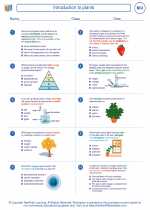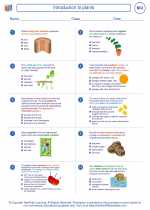Deciduous Forest
Definition
A deciduous forest is a biome characterized by trees that shed their leaves annually. These forests are found in regions with four distinct seasons, including a warm summer and a cold winter.
Climate
The climate of deciduous forests features moderate temperatures, with a range of about 30 to 60 degrees Fahrenheit. These forests receive about 30 to 60 inches of precipitation annually, which is distributed fairly evenly throughout the year.
Flora and Fauna
The flora of deciduous forests includes a variety of tree species such as oak, maple, beech, and birch. The forest floor is also home to a diverse array of plants, including ferns, wildflowers, and mosses. Fauna in deciduous forests includes mammals such as deer, bears, foxes, and raccoons, as well as a variety of bird species and insects.
Soil
Deciduous forests typically have fertile, well-drained soils that support the growth of a wide range of plant species. The forest floor is often covered in a layer of leaf litter, which decomposes to enrich the soil.
Threats and Conservation
Deciduous forests are threatened by deforestation, urbanization, and climate change. Conservation efforts aim to protect and restore these important ecosystems through initiatives such as reforestation, habitat preservation, and sustainable land management practices.
Study Tips
- Learn to identify common tree and plant species found in deciduous forests.
- Understand the seasonal changes and adaptations of flora and fauna in deciduous forests.
- Explore the impact of human activities on deciduous forest ecosystems and conservation efforts.
◂Biology Worksheets and Study Guides High School. Introduction to plants

 Worksheet/Answer key
Worksheet/Answer key
 Worksheet/Answer key
Worksheet/Answer key
 Vocabulary/Answer key
Vocabulary/Answer key
 Vocabulary/Answer key
Vocabulary/Answer key
 Vocabulary/Answer key
Vocabulary/Answer key
 Vocabulary/Answer key
Vocabulary/Answer key
 Vocabulary/Answer key
Vocabulary/Answer key
